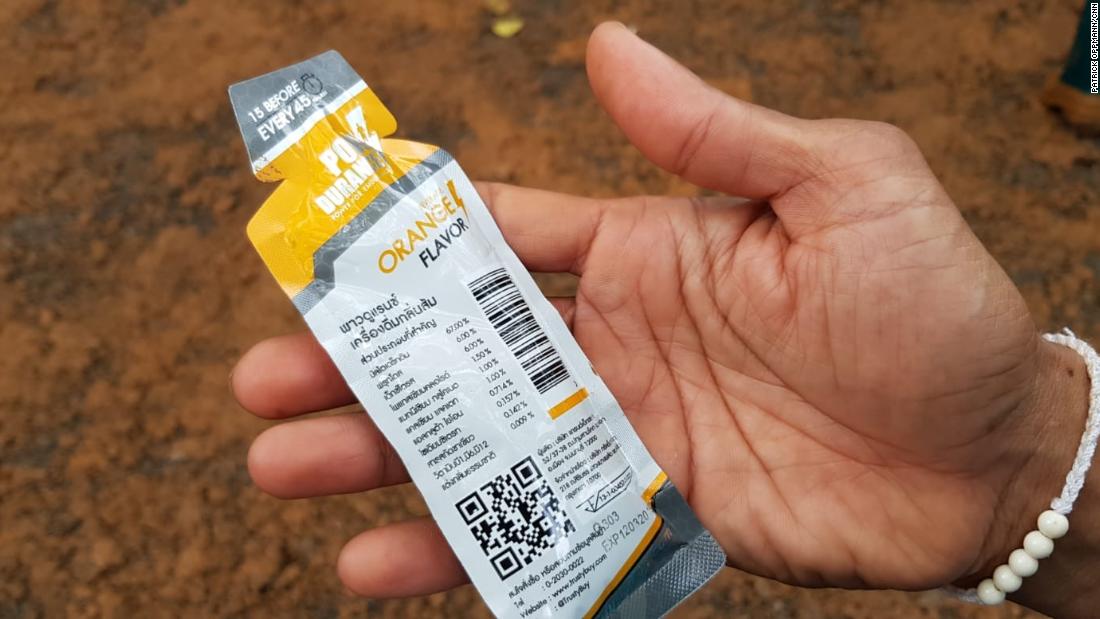Why will it take so long to rescue the trapped Thai soccer team?
(CNN)The threat of more rain is increasing pressure on rescuers in northern Thailand to find a way to get 12 boys and their coach safely out of the flooded Tham Luang Nang Non cave complex.
Seven Thai Navy SEAL divers, including a doctor and nurse, spent Tuesday night huddled in the dark with members of the Wild Boar soccer team, who have been trapped inside the cave since June 23.
The soccer team was found deep within the cave on Monday night, and Thai authorities say while they want to get them out as soon as possible, they'll only attempt to move them when it's clear they're strong enough to leave.
Now that they've been located are they safe?
Not yet. The boys and their coach appear to have sustained only light injuries such as skin rashes, according to Thai Navy SEALs. Kamolroj Ekwattanakij, a communication officer with the Thai Navy SEALs, told CNN that divers also brought the weakened boys food, mainly grilled pork, sticky rice and milk.
They're also being fed sacks of power gel to boost their energy.

The boys are being given power gel to increase their strength.
The group remains stuck around two kilometers (1.24 miles) into the cave and somewhere between 800 meters and one kilometer (0.6 miles) below the surface, according to a British Cave Rescue Council briefing note.
The other immediate issue is the risk of water continuing to rise. The boys, between ages 11 and 16, were found huddled together on a small, dry, mud-covered incline, surrounded by water in a cramped, pitch-black chamber.
Thailand is in the midst of its monsoon season and while Monday was relatively dry, the rains returned on Tuesday. Huge pumps have been running to drain the cave complex, but any downpour could potentially set back bids to free the team.
Related: What the boys said to rescuers
Why can't the boys come out the same way the rescuers went in?
Experienced divers negotiated tight, flooded channels to reach the team over nine days. Navigating this difficult terrain, which is also pitch black and may involve struggling against fast-flowing, muddy water in some areas, will be difficult.
Bill Whitehouse, vice chairman of the British Cave Rescue Council, said "all feasible options for the rescue of the boys are being considered."
One possible extraction method being explored is diving the youth team to safety -- though it is perhaps one of the least preferable strategies.
Experts have cautioned that any attempt to traverse the confined passages will be fraught with difficulties and potential complications, especially if the children can't swim.
"Cave diving is incredibly dangerous for people who are very experienced doing it. And now you're looking at taking people who have no experience or very little experience with diving, and putting them into a complete blackout situation, where they have to rely on a regulator and the tanks with them to breathe," Anmar Mirza, a cave rescue expert, told CNN.
Mirza, a member of the US National Cave Rescue Commission, instead suggested the safest option would be to remain in place and continue to provide the boys with supplies until water levels drop or a new entrance is found.
Related: Search teams unsure how to free trapped team
Why are they being sent four months of food?
Capt. Akanand Surawan, a commander with the Royal Thai Navy, said authorities will supply the team with four months' worth of food. Surawan's reference to four months has been interpreted as a potential sign that authorities are considering waiting until the rainy season ends in October.
But sticking it out until the weather improves "may not be an option" based on the porous rock type found inside the cave network, according to Tim Taylor, an experienced ocean explorer and expert on underwater robotics.
"It's a giant sponge so if the water rises anywhere on the water table, it affects the whole cave system," Taylor explained.
Taylor suggested that there is hope in spite of the perilous conditions.
"You don't have to swim to dive. The equipment does the work for you -- you just have to be comfortable ... to overcome that fear and learn. That is what's going to be difficult to teach," Taylor said.
"It's not impossible... it's not going to be done in a day. I would imagine they are going to take some time to train these kids," he added.
CNN's Schams Elwazer and Mark Oliver contributed to this report.
News Courtesy: www.cnn.com











